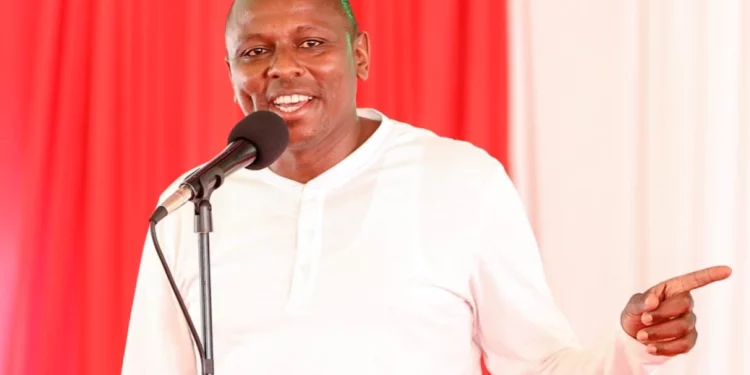The National Assembly majority leader, Kimani Ichung’wah, has said not all government parastatals that are up for privatization will be sold.
During an interview with one media outlet, Ichung’wah strongly disbanded the idea that privatization means completely selling and giving away ownership of the government parastatals.
To clarify the matter, he gave an example of how stakeholders in western sugar companies can lease the factories to investors who can modernize production, which in turn would generate revenue for the families in the region.
The Kikuyu MP also implied that the companies could be sold to the public via initial public offerings (IPOs) in order to generate greater profits.
“I want to disabuse the notion that when you talk of privatization, you’re talking about an outright sale. We could have an IPO when Kenyans are given the option to buy into some of these companies,” Ichungwah stated.
In November, the government announced it would start its privatization drive by offering stakes in 11 companies, including the state oil pipeline, as released by the finance ministry.
The companies were slated for sale to partially help the government raise revenue in the face of growing debt repayments.
Various leaders from the companies openly opposed the bill, as others claimed that it was a move by the government to implement state capture.
On December 5, a Kenyan court suspended the government plan to start a fresh privatization drive under a modified law while it heard a challenge that an opposition party had brought against the sales.
The government revised the law governing the sale of state companies in October to eliminate the bureaucracy that had brought the process to a halt, the president said in late November.
Critics said the legal change took away parliament’s oversight of the privatization process.
The majority leader pleaded with Kenyans to await the privatization program to be finalized, and after it is submitted to parliament, the specific details on the companies to be privatized in the various models will be out.
This, he said, is in a bid to save the government hundreds of millions that are spent running parastatals that could be tweaked to generate revenue.
Amidst opposition and legal challenges, the debate centers on revenue generation, ownership models, and the impact on the economy.














